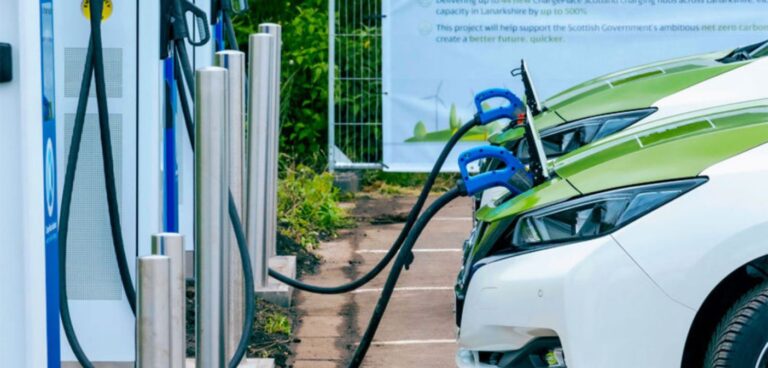A partnership between SP Energy Networks (SPEN) and the Scottish government said it aims to deliver up to £2.6m of savings to the taxpayers through its EV charging project.
Project Pace is expected to achieve between £30,000 and £60,000 average savings on electricity grid connection costs per new EV charging location. This equates to a total of between £1.3m to £2.6m of taxpayer money saved across all planned sites.
SPEN said this saving would be achieved through choosing charging locations that make effective use of the existing electricity network.
During the first phase of the project, SPEN used its electric network knowledge as well as collaborating with local stakeholders to identify optimal locations for community EV charging hubs.
Scott Mathieson, director of network planning and regulation at SP Energy Networks, said: “The creation of more publicly available electric vehicle charging locations is vital to meeting both Scottish and UK government net zero targets so we’re proud to be leading the way through Project Pace.
“SPEN invested £500,000 in the optioneering phase to ensure we chose optimum locations for the project, which will be of most use for drivers and help deliver substantial savings for the communities we serve.”
Project Pace will see 180 EV chargers installed across more than 40 hubs in North and South Lanarkshire by April 2021. The first of which were installed in Strathclyde Country Park in August. Figures from the project show the hub has been used 1,700 times since it was installed.
According to SPEN, the project is targeting an increase in the number of public EV chargers in the Lanarkshire region by over 200%. The additional chargers are expected to accommodate more than 5000 EVs.
Furthermore, the project aims to increase the number of chargers in Scotland as a whole by 14%.
Cabinet Secretary for Transport, Infrastructure and Connectivity Michael Matheson, said: “This effective partnership working, using specialist knowledge, is radically improving the speed, effectiveness and efficiency of the rollout of electric vehicle charging infrastructure.
“This is key to responding to the climate emergency and transitioning to a net-zero economy, as we seek to phase out the need for new petrol and diesel cars and vans by 2032.”





